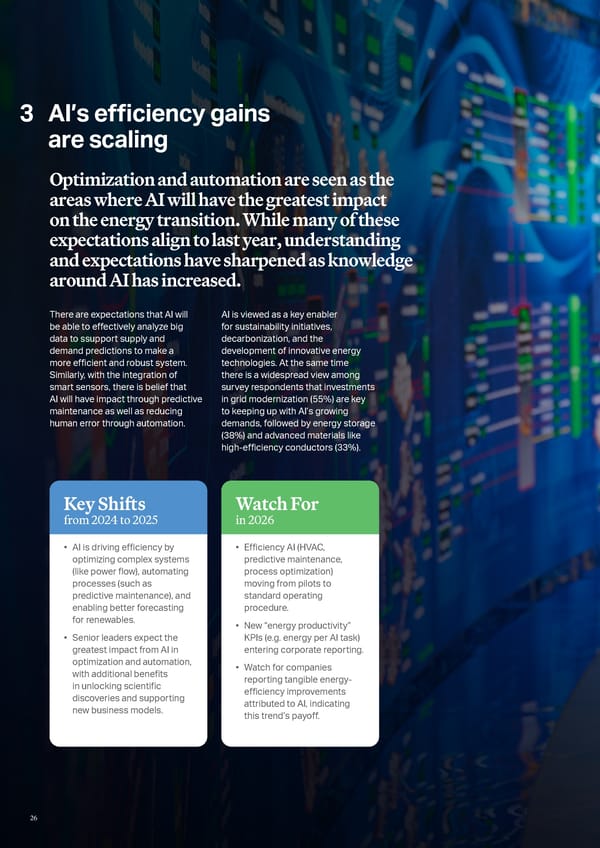3 AIs efficiency gains are scaling Optimization and automation are seen as the areas where AI will have the greatest impact on the energy transition. While many of these expectations align to last year, understanding and expectations have sharpened as knowledge around AI has increased. There are expectations that AI will be able to effectively analyze big data to ssupport supply and demand predictions to make a more efficient and robust system. Similarly, with the integration of smart sensors, there is belief that AI will have impact through predictive maintenance as well as reducing human error through automation. AI is viewed as a key enabler for sustainability initiatives, decarbonization, and the development of innovative energy technologies. At the same time there is a widespread view among survey respondents that investments in grid modernization (55%) are key to keeping up with AIs growing demands, followed by energy storage (38%) and advanced materials like high-efficiency conductors (33%). Key Shifts from 2024 to 2025 AI is driving efficiency by optimizing complex systems (like power flow), automating processes (such as predictive maintenance), and enabling better forecasting for renewables. Senior leaders expect the greatest impact from AI in optimization and automation, with additional benefits in unlocking scientific discoveries and supporting new business models. Watch For in 2026 Efficiency AI (HVAC, predictive maintenance, process optimization) moving from pilots to standard operating procedure. New energy productivity KPIs (e.g. energy per AI task) entering corporate reporting. Watch for companies reporting tangible energy- efficiency improvements attributed to AI, indicating this trends payoff. 24
 Powering Possible 2025: Unleashing AI for Energy and Energy for AI Page 23 Page 25
Powering Possible 2025: Unleashing AI for Energy and Energy for AI Page 23 Page 25